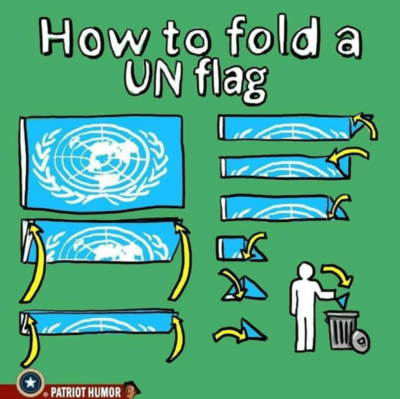Keep Mahmoud Abbas out of the U.S. for funding terror
If someone paid a terrorist in order to murder an American, the US would certainly prohibit that person’s entry into the country. If someone who funded terror against Americans traveled to the US, the US would certainly be expected to arrest him as soon as he set his foot on American soil.Top minister suggests barring Abbas from West Bank over PA’s anti-Hamas steps
If someone paid a terrorist after he murdered an American, the treatment should be no different. Americans would expect their government to prohibit the entry of that person who rewards killers of Americans, and should he arrive at America's borders they would expect that he be detained for interrogation.
Palestinian Authority Chairman Mahmoud Abbas, who plans to come to New York City this week, does exactly that. He pays terrorists after they murder not only Israelis but also Americans.
Abdallah Barghouti built the bombs that murdered 67 people. One of his bombs was planted at the Hebrew University in Jerusalem in 2002 and also killed five Americans: Janis Ruth Coulter, David Gritz, Marla Bennett, Dina Carter and Benjamin Blutstein. Under PA law from 2004 and regulations instituted by Abbas himself in 2011, terrorist murderer Barghouti has been rewarded with a monthly salary which by today exceeds over $200,000 in payments.
Ibrahim Hamed planned bombings in which 53 people were murdered, and Americans were among them. Shoshana Judy Greenbaum, aged 31, who was murdered in the Sbarro Pizza shop suicide bombing in 2001, was 5 months pregnant when killed. Another American citizen who was murdered in that bombing was Malki Roth, aged 15. Under Abbas' “Pay for Slay” program Hamed has already received $143,000.
Boston teenager Ezra Schwartz and two others were murdered by terrorist Muhammad Al-Hroub in 2015. Abbas’ reward program has already paid him nearly $16,000 in salary payments.
Public Security Minister Gilad Erdan on Sunday suggested barring Palestinian Authority President Mahmoud Abbas from returning to the West Bank when he next travels abroad, claiming the PA leader was “one of the main instigators of violence on the southern border” and contributed nothing to the diplomatic process.Conservatives Can Fix the United Nations
Abbas, Erdan told Israel Radio, was responsible for the ongoing turmoil on the Israel-Gaza border through his ongoing economic pressure on Hamas as he tries to break the terror group’s grip over the enclave.
“The one really responsible behind the scenes for all that is happening is Abu Mazen,” he said, using Abbas’s nickname. “He is the one to move inspectors out of the Rafah Crossing, he is the one sanctioning Hamas in order to pressure Hamas — pressure that is bleeding over to us.”
The Likud minister said the government should consider taking action against Abbas in the coming months as his policy is “undeniably to foment unrest and incite against Israel, whether directly or through sanctions on Hamas.”
“Maybe we should go as far as to consider one of the next times Abu Mazen leaves not to allow him to come back, because today he makes no contribution to the diplomatic process. He’s only doing damage with his attitude toward Hamas,” he said.
Many conservatives despise the United Nations. “The Secretariat building in New York has thirty-eight stories,” John Bolton said in 1994 while a lawyer in the private sector. “If it lost ten stories, it wouldn’t make a bit of difference.” Bolton’s subsequent tenure as ambassador to the United Nations and now National Security Advisor has not changed his attitude. While Bolton focused his criticism on UN inefficiency, criticisms of the almost seventy-five-year-old institution range the gambit: encroachment on sovereignty, impunity of its officials, corruption, anti-Semitism , obsession with if not malice toward Israel, and even violations of the Geneva Conventions.United Nations grapples with financial woes, decline in global influence
The Many Criticisms of UN
On most counts, critics are correct. The UN of today bears little resemblance to the body envisioned at its creation. The UN had its beginnings against the backdrop of World War II, when the United States, United Kingdom, Soviet Union, and Republic of China met at the Dumbarton Oaks Conference to begin the process that would culminate in the UN’s formation on October 24, 1945. The original UN had four goals : To keep peace throughout the world; to develop friendly relations among nations; to help nations work together to improve the lives of the poor, and to encourage respect for each other’s rights and freedoms; and to harmonize nations to achieve these goals.
In practice, such broad and heady ambitions have given cover to an ever-expanding array of organizations, easy to form, easier to expand, and almost impossible to end. The UN created the United Nations Relief and Works Agency for Palestine Refugees (UNRWA) in 1949, for example, to address Palestinians displaced by Israel’s 1948 War of Independence. In 1951, UNRWA outlined a three-year plan to resettle Palestinian refugees and, yet, sixty-five years later, UNRWA has a nearly $1 billion budget , even as the number of first generation displaced or refugees dwindles to just a few thousand. Or, consider the United Nations Mission for the Referendum in Western Sahara (MINURSO), created in 1991 to survey Sahrawi refugees about desired final status for the Western Sahara. Almost thirty years later, the UN has spent hundreds of millions of dollars, and no referendum has been held. The UN funds special rapporteurs to promote the Venezuelan model, even as millions of Venezuelans choose between flight from their socialist paradise or starvation. The UN has only retired one specialized agency—the International Refugee Organization—but that quickly replaced by the UN High Commissioner for Refugees (UNHCR). A quarter century after Palau, the last trustee, won independence, the UN Trustee Council technically still exists . Put another way, when founded, the UN Secretariat included three hundred persons, a number which expanded ten-fold in its first six months. In 1991, the UN more broadly employed fifty-two thousand people worldwide. Twenty-five years later, the number was approaching one hundred thousand.
In Congress, many Republicans seek to curtail, if not end U.S. funding of the United Nations over that organization’s inefficiency. Rather than effectively supervise the UN’s internal operations, successive secretaries-general have viewed their position as an invitation to jet set and bloviate. Other UN officials saw in budget talks an opportunity to drink free booze rather than promote accountability.
The United Nations says it’s running out of cash, with a budget deficit that comes as experts observe a steady decline in the organization’s influence in many parts of the world.
Late last week, UN Secretary-General Antonio Guterres warned that member states have been slow to pay their dues to the UN, with 81 countries still owing a total of $810 million to the world body as of late July.
What’s more, the cash shortfall is worse than in previous years, Guterres said, and appears to highlight a disturbing pattern in late payment by member countries.
“Our cash flow has never been this low so early in the calendar year, and the broader trend is also concerning: we are running out of cash sooner and staying in the red longer,” the Portuguese diplomat wrote in a letter to member states.
Canada is one of 113 member states to have paid their budget assessments in full. Countries are assessed according to their capacity to pay and gross national income — Canada’s assessment for 2018 came to just over $71 million.
But 81 states are yet to pay. These include under-developed and conflict-ridden states like Afghanistan, Syria and Somalia, as well as richer countries like Saudi Arabia and the United States, which pays 22 per cent of the UN’s core budget — some $1.2 billion — and traditionally pays later because of its budget year.









































